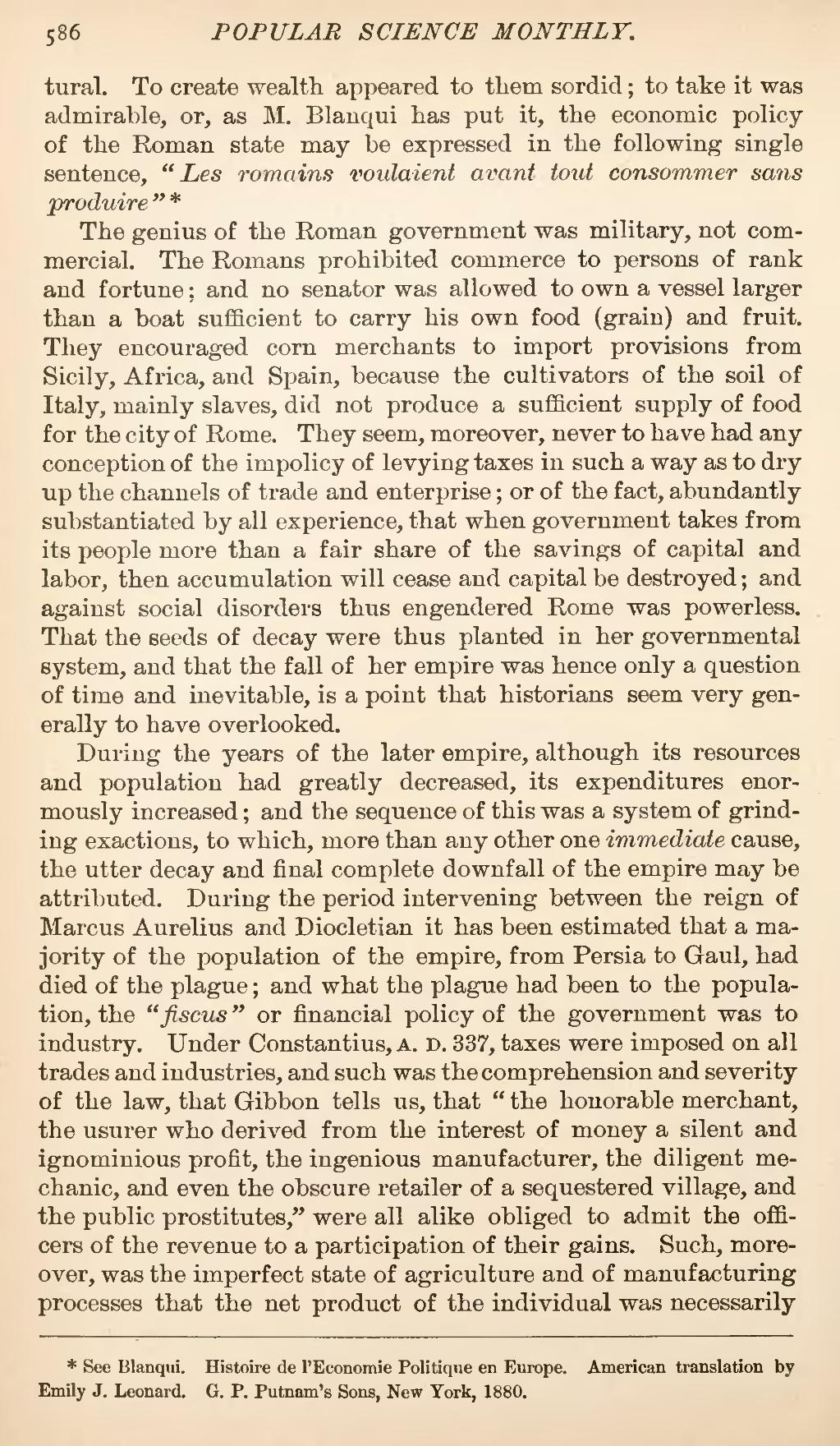tural. To create wealth appeared to them sordid; to take it was admirable, or, as M. Blanqui has put it, the economic policy of the Roman state may be expressed in the following single sentence, "Les romains voulaient avant tout consommer sans produire"[1]
The genius of the Roman government was military, not commercial. The Romans prohibited commerce to persons of rank and fortune; and no senator was allowed to own a vessel larger than a boat sufficient to carry his own food (grain) and fruit. They encouraged corn merchants to import provisions from Sicily, Africa, and Spain, because the cultivators of the soil of Italy, mainly slaves, did not produce a sufficient supply of food for the city of Rome. They seem, moreover, never to have had any conception of the impolicy of levying taxes in such a way as to dry up the channels of trade and enterprise; or of the fact, abundantly substantiated by all experience, that when government takes from its people more than a fair share of the savings of capital and labor, then accumulation will cease and capital be destroyed; and against social disorders thus engendered Rome was powerless. That the seeds of decay were thus planted in her governmental system, and that the fall of her empire was hence only a question of time and inevitable, is a point that historians seem very generally to have overlooked.
During the years of the later empire, although its resources and population had greatly decreased, its expenditures enormously increased; and the sequence of this was a system of grinding exactions, to which, more than any other one immediate cause, the utter decay and final complete downfall of the empire may be attributed. During the period intervening between the reign of Marcus Aurelius and Diocletian it has been estimated that a majority of the population of the empire, from Persia to Gaul, had died of the plague; and what the plague had been to the population, the "fiscus" or financial policy of the government was to industry. Under Constantius, a. d. 337, taxes were imposed on all trades and industries, and such was the comprehension and severity of the law, that Gibbon tells us, that "the honorable merchant, the usurer who derived from the interest of money a silent and ignominious profit, the ingenious manufacturer, the diligent mechanic, and even the obscure retailer of a sequestered village, and the public prostitutes," were all alike obliged to admit the officers of the revenue to a participation of their gains. Such, moreover, was the imperfect state of agriculture and of manufacturing processes that the net product of the individual was necessarily
- ↑ See Blanqui. Histoire de l'Economie Politique en Europe. American translation by Emily J. Leonard. G. P. Putnam's Sons, New York, 1880.
